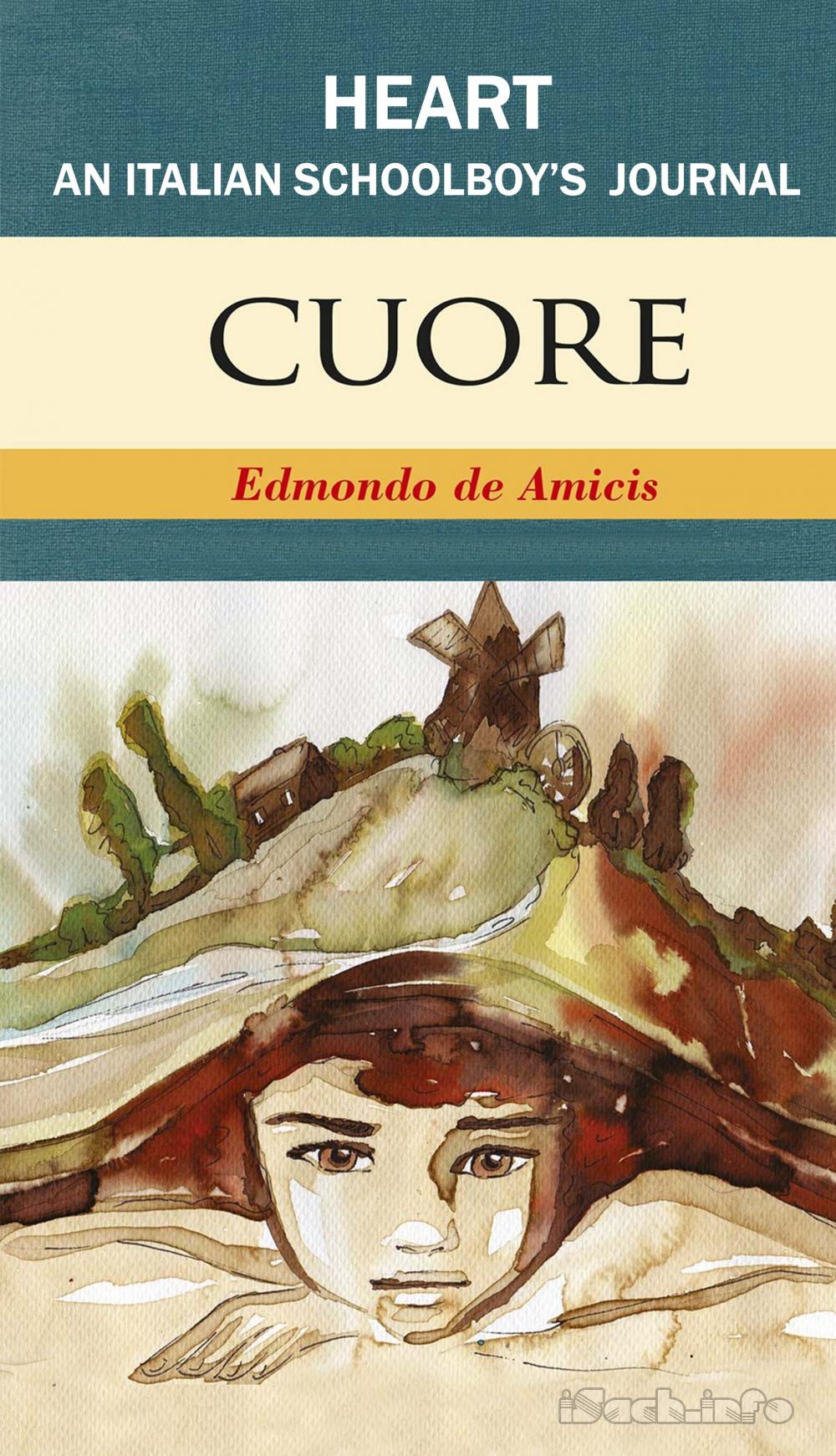Part V: February - Chapter 45: A Medal Well Bestowed
S
aturday, 4th.THIS morning the superintendent of the schools, a gentleman with a white beard, and dressed in black, came to bestow the medals. He entered with the head-master a little before the close and seated himself beside the teacher. He questioned a few, then gave the first medal to Derossi, and before giving the second, he stood for a few moments listening to the teacher and the head-master, who were talking to him in a low voice. All were asking themselves, “To whom will he give the second?” The superintendent said aloud:—
“Pupil Pietro Precossi has merited the second medal this week,—merited it by his work at home, by his lessons, by his handwriting, by his conduct in every way.” All turned to look at Precossi, and it was evident that all took pleasure in it. Precossi rose in such confusion that he did not know where he stood.
“Come here,” said the superintendent. Precossi sprang up from his seat and stepped up to the master’s table. The superintendent looked attentively at that little waxen face, at that puny body enveloped in turned and ill-fitting garments, at those kind, sad eyes, which avoided his, but which hinted at a story of suffering; then he said to him, in a voice full of affection, as he fastened the medal on his shoulder:—
“I give you the medal, Precossi. No one is more worthy to wear it than you. I bestow it not only on your intelligence and your good will; I bestow it on your heart, I give it to your courage, to your character of a brave and good son. Is it not true,” he added, turning to the class, “that he deserves it also on that score?”
“Yes, yes!” all answered, with one voice. Precossi made a movement of the throat as though he were swallowing something, and cast upon the benches a very sweet look, which was expressive of immense gratitude.
“Go, my dear boy,” said the superintendent; “and may God protect you!”
It was the hour for dismissing the school. Our class got out before the others. As soon as we were outside the door, whom should we espy there, in the large hall, just at the entrance? The father of Precossi, the blacksmith, pallid as was his wont, with fierce face, hair hanging over his eyes, his cap awry, and unsteady on his legs. The teacher caught sight of him instantly, and whispered to the superintendent. The latter sought out Precossi in haste, and taking him by the hand, he led him to his father. The boy was trembling. The boy and the superintendent approached; many boys collected around them.
“Is it true that you are the father of this lad?” demanded the superintendent of the blacksmith, with a cheerful air, as though they were friends. And, without awaiting a reply:—
“I rejoice with you. Look: he has won the second medal over fifty-four of his comrades. He has deserved it by his composition, his arithmetic, everything. He is a boy of great intelligence and good will, who will accomplish great things; a fine boy, who possesses the affection and esteem of all. You may feel proud of him, I assure you.”
The blacksmith, who had stood there with open mouth listening to him, stared at the superintendent and the head-master, and then at his son, who was standing before him with downcast eyes and trembling; and as though he had remembered and comprehended then, for the first time, all that he had made the little fellow suffer, and all the goodness, the heroic constancy, with which the latter had borne it, he displayed in his countenance a certain stupid wonder, then a sullen remorse, and finally a sorrowful and impetuous tenderness, and with a rapid gesture he caught the boy round the head and strained him to his breast. We all passed before them. I invited him to come to the house on Thursday, with Garrone and Crossi; others saluted him; one bestowed a caress on him, another touched his medal, all said something to him; and his father stared at us in amazement, as he still held his son’s head pressed to his breast, while the boy sobbed.



 ePub
ePub A4
A4